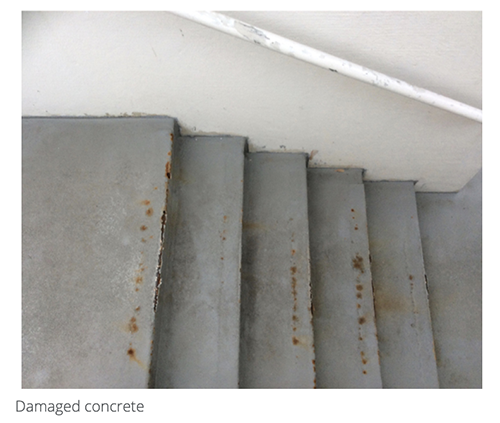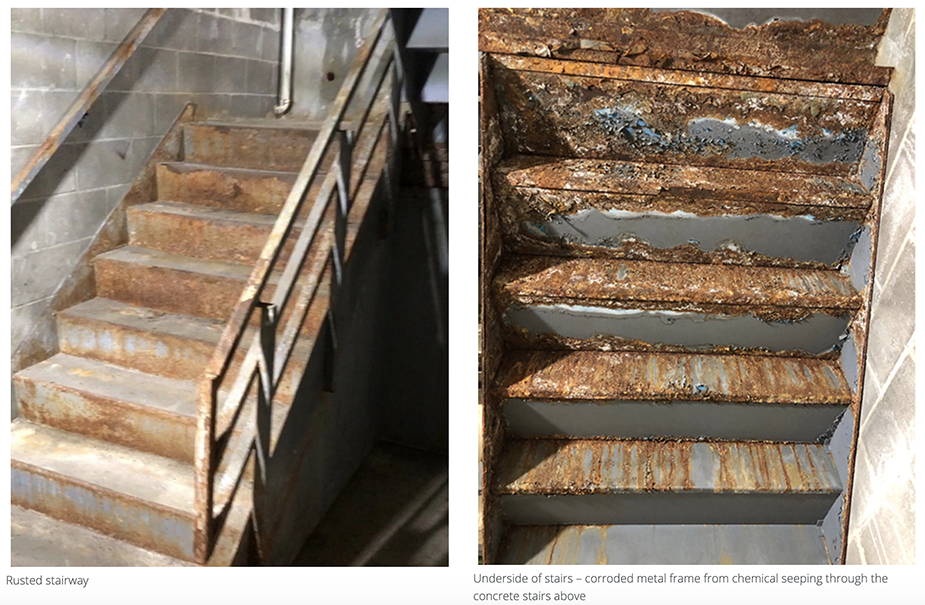 It’s that time in Texas we fear every five to ten years when heavy snow is in the forecast. While it may be tempting to use de-icers or salt on sidewalks, exterior metal stairs and drive ramps, beware of the unintended consequences for your building.
It’s that time in Texas we fear every five to ten years when heavy snow is in the forecast. While it may be tempting to use de-icers or salt on sidewalks, exterior metal stairs and drive ramps, beware of the unintended consequences for your building.
All equipment was inspected daily by a competent person before use. Personal protective equipment was worn at all times. Daily Job Hazard Analyses were completed, and weekly toolbox talks were held for the crew covering pertinent safety topics and reinforcing Chamberlin's safety policies and procedures.
Some chemicals found in de-icers for concrete can cause damage to plants, metals and concrete. They can have adverse effects on vegetation, soil structure and groundwater by pulling moisture from them. Certain chemicals can corrode metal such as the metal framing on stairways and the rebar in the concrete stairs. Some leave an oily residue on the surface and could even discolor concrete. Others cause spalling and can weaken the structural integrity and longevity of your concrete. In addition to the chemicals, the de-icers are often abrasive and could grind down the surface of waterproof coatings and custom finished concrete.
Chamberlin has restored many buildings and parking garages damaged by the well-intentioned application of such anti-slip products. We have found a better option is spreading sand for traction. Our crews have special anti-slip shoe equipment that allows them to safely shovel snow and spread sand on your property’s sidewalks, ramps and stairways for the safety of you and your tenants.

If you’ve already applied de-icer that contains corrosive chemicals in preparation for the impending weather, do not fear. It can be pressure washed off before it sits long enough to cause damage. (Chamberlin can do that, too.)


